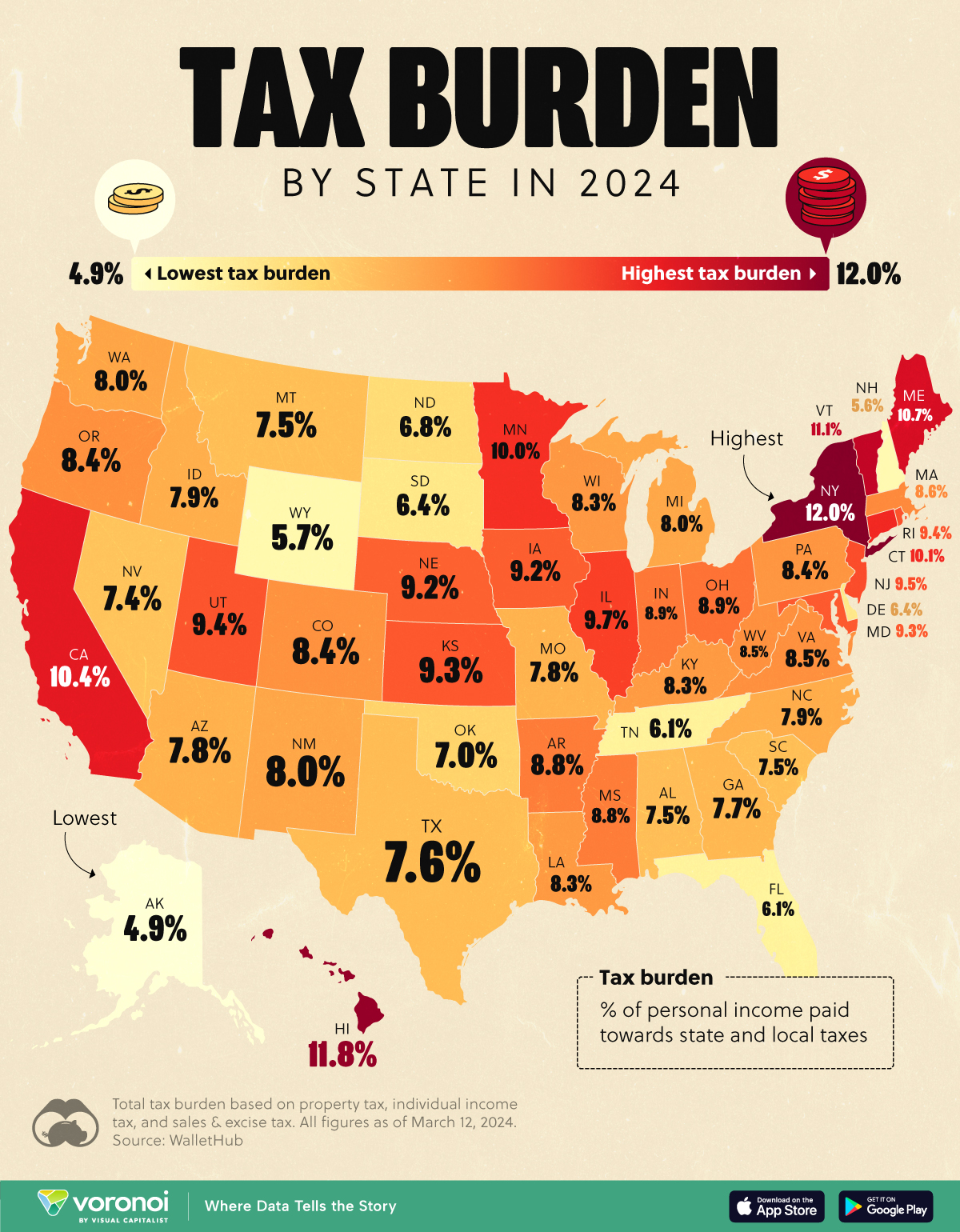Photo: Visual Capitalist
I don't know how to fix the tax problem in America. But I do know how to listen to ideas on any solution that would fix the tax system in America. Recently, on a podcast produced by Anthony Scaramucci (President Trump's Communication guy for a few days during his first administration), the previous Governor of New York - Andrew Cuomo, was on to speak on this topic. Below is an excerpt worth listening to:
